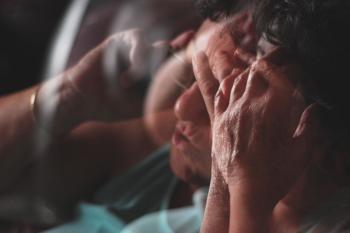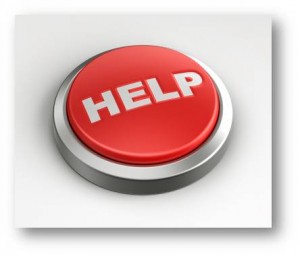1. Prayer
Since the alcoholic, addict or dysfunctional person cannot be helped until he or she wants help, it is necessary that we begin to pray for them, asking that God will bring them to that place that he/she will seek help. Do not be discouraged. Things might get worse before they get better; but remember, God answers prayer. 
2. Offer the Gospel
In Romans 1:16 we read, “For I am not ashamed of the gospel of Christ, for it is the power of God unto salvation to everyone that believeth.”
So often, we tend to try everything but the power of God in helping the addicted or dysfunctional person. Now it is true that he may always need medical help, possibly psychiatric help, and the help of a counselor may be profitable; but without the power of Christ working in the life of this individual, nothing will be of lasting value. Witness to him or her of your own faith in Christ and through your church, putting them in contact with others who have a vital testimony to the power of God to change lives.
Good Christian literature will also be a help in getting this message across and we would be glad to make suggestions as to what books he might find profitable.
3. Fellowship
One of the strongest points of recovery groups is the fellowship that they have one with the other. It is necessary that when an alcoholic, addict or dysfunctional person makes a step toward recovery that we be willing to offer them fellowship, to make them feel welcome, to make them feel needed and to encourage them to share with others. This could be done through CIR or through the fellowwship of a church or a Christian businessmen’s committee such as a Gideon Camp.


 or changing their life in any way. I believe it is a problem with their eyes not seeing and their ears not hearing.
or changing their life in any way. I believe it is a problem with their eyes not seeing and their ears not hearing. 




 who at one time would have been hospitalized for their problems. As many as half of them are also addicted to alcohol and/or drugs. Many are “self-medicating” — using addictive substances to cope with their mental problems. Social service professionals usually do not like working with these “dually diagnosed” people because they can be so demanding and time-consuming. They can be too destructive and troubled for the typical addiction recovery program. And, mental health workers shy away from them because they often do not stay sober long enough for treatments to be effective. So, they end up at the rescue mission.
who at one time would have been hospitalized for their problems. As many as half of them are also addicted to alcohol and/or drugs. Many are “self-medicating” — using addictive substances to cope with their mental problems. Social service professionals usually do not like working with these “dually diagnosed” people because they can be so demanding and time-consuming. They can be too destructive and troubled for the typical addiction recovery program. And, mental health workers shy away from them because they often do not stay sober long enough for treatments to be effective. So, they end up at the rescue mission. Alcohol dependence, sometimes referred to as alcoholism , is the most severe type of alcohol problem and is characterized by three of seven symptoms experienced during a one year time period. According to the Diagnostic and Statistical Manual of Mental Disorders, Fourth Edition, the symptoms of alcohol dependence include:
Alcohol dependence, sometimes referred to as alcoholism , is the most severe type of alcohol problem and is characterized by three of seven symptoms experienced during a one year time period. According to the Diagnostic and Statistical Manual of Mental Disorders, Fourth Edition, the symptoms of alcohol dependence include: